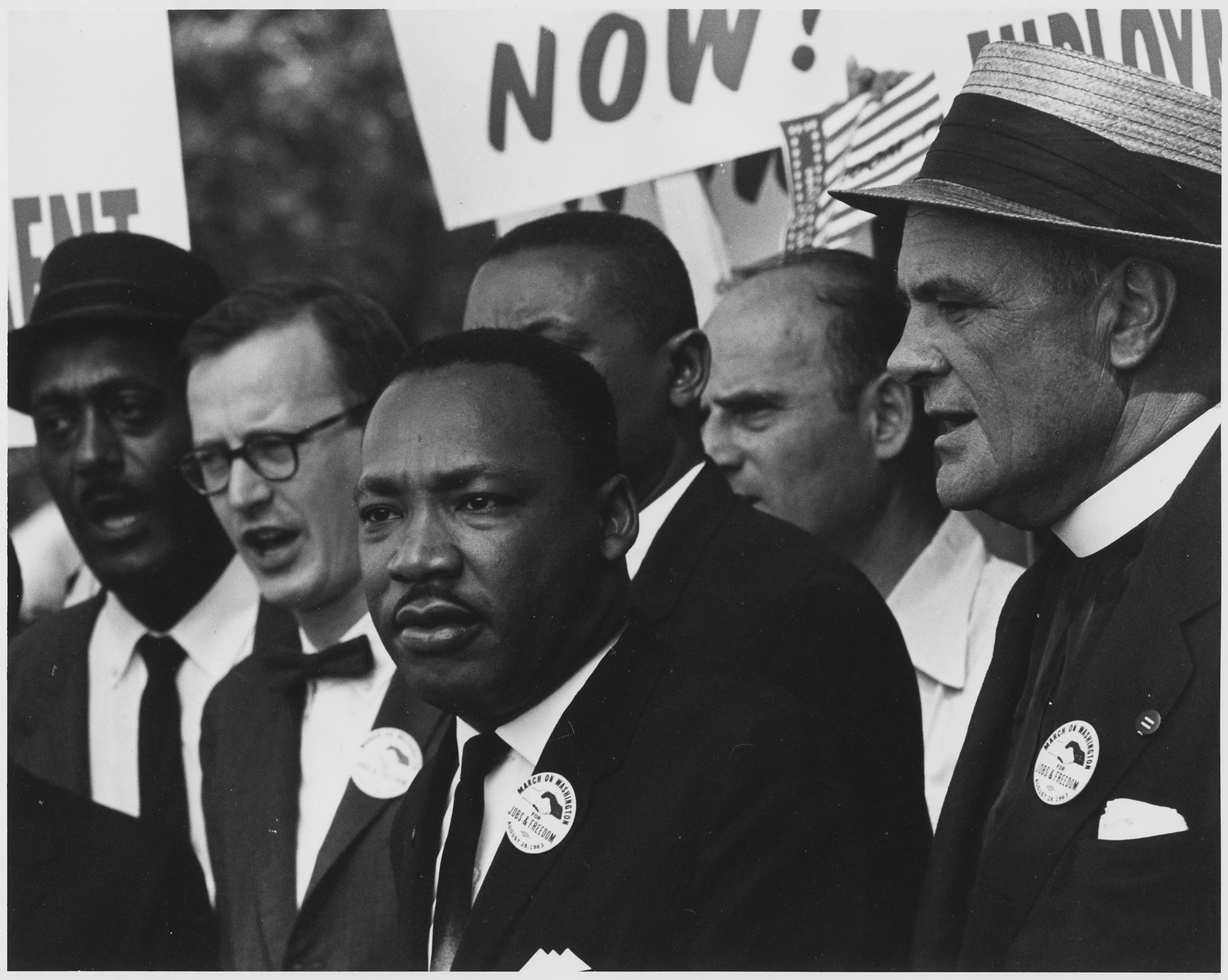Today is Martin Luther King Jr. Day, and like we do every year in honor of Dr. King’s memory, I’m posting an excerpt from his Letter From Birmingham Jail.
In these passages, Dr. King makes the case for the value of direct action (citing the examples of sit-ins, marches, and so forth) to his audience, explaining that nonviolent direct action sets the stage for negotiation. History, he observed, has shown that civil rights advances are never achieved except through pressure.
Many decades have elapsed since these words were written. Sadly, racism and injustice remain a painful reality for many people in this country.
Nevertheless, the struggle for greater freedom and equality continues.
Here’s Dr. King. (Note that typos are contained in the original manuscript.)
You may well ask: “Why direct action? Why sit ins, marches and so forth? Isn’t negotiation a better path?” You are quite right in calling for negotiation. Indeed, this is the very purpose of direct action.
Nonviolent direct action seeks to create such a crisis and foster such a tension that a community which has constantly refused to negotiate is forced to confront the issue.
It seeks so to dramatize the issue that it can no longer be ignored.
My citing the creation of tension as part of the work of the nonviolent resister may sound rather shocking.
But I must confess that I am not afraid of the word “tension.”
I have earnestly opposed violent tension, but there is a type of constructive, nonviolent tension which is necessary for growth.
Just as Socrates felt that it was necessary to create a tension in the mind so that individuals could rise from the bondage of myths and half truths to the unfettered realm of creative analysis and objective appraisal, so must we see the need for nonviolent gadflies to create the kind of tension in society that will help men rise from the dark depths of prejudice and racism to the majestic heights of understanding and brotherhood.
The purpose of our direct action program is to create a situation so crisis packed that it will inevitably open the door to negotiation.
I therefore concur with you in your call for negotiation.
Too long has our beloved Southland been bogged down in a tragic effort to live in monologue rather than dialogue.
One of the basic points in your statement is that the action that I and my associates have taken in Birmingham is untimely.
Some have asked: “Why didn’t you give the new city administration time to act?” The only answer that I can give to this query is that the new Birmingham administration must be prodded about as much as the outgoing one, before it will act.
We are sadly mistaken if we feel that the election of Albert Boutwell as mayor will bring the millennium to Birmingham.
While Mr. Boutwell is a much more gentle person than Mr. Connor, they are both segregationists, dedicated to maintenance of the status quo. I have hope that Mr. Boutwell will be reasonable enough to see the futility of massive resistance to desegregation.
But he will not see this without pressure from devotees of civil rights.
My friends, I must say to you that we have not made a single gain in civil rights without determined legal and nonviolent pressure.
Lamentably, it is an historical fact that privileged groups seldom give up their privileges voluntarily. Individuals may see the moral light and voluntarily give up their unjust posture; but, as Reinhold Niebuhr has reminded us, groups tend to be more immoral than individuals.
Take a few minutes today to read the whole thing.

